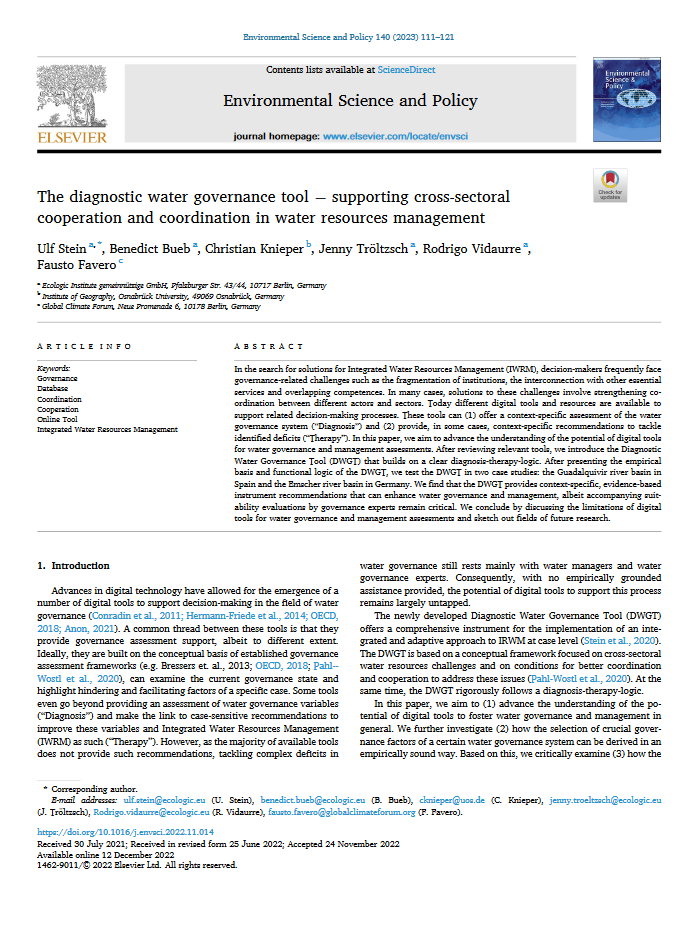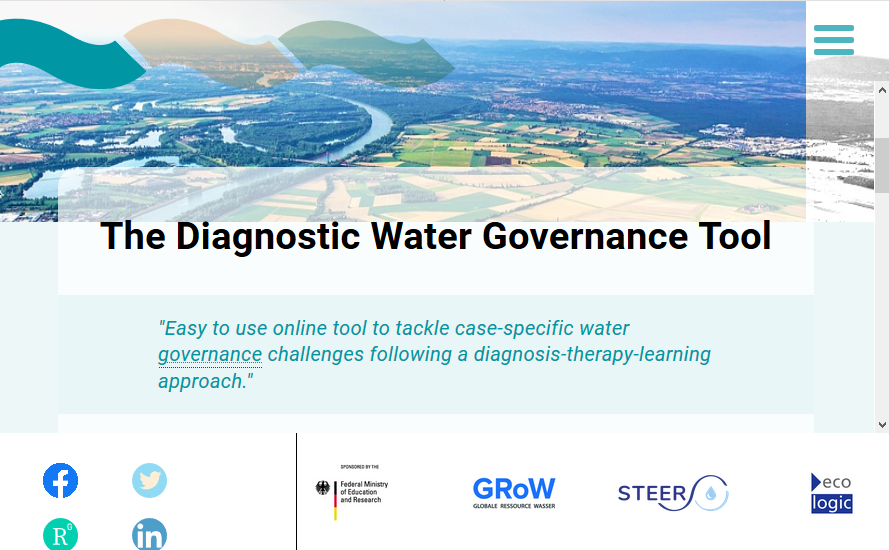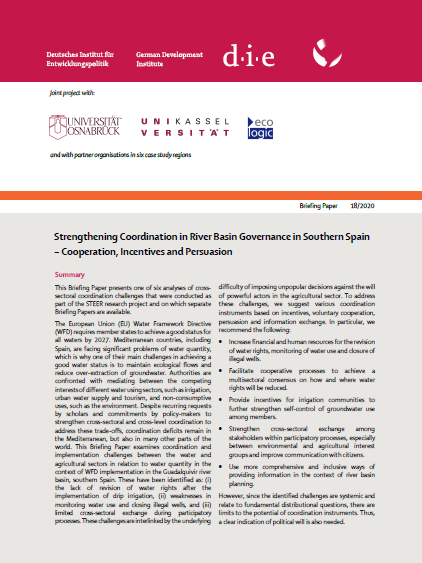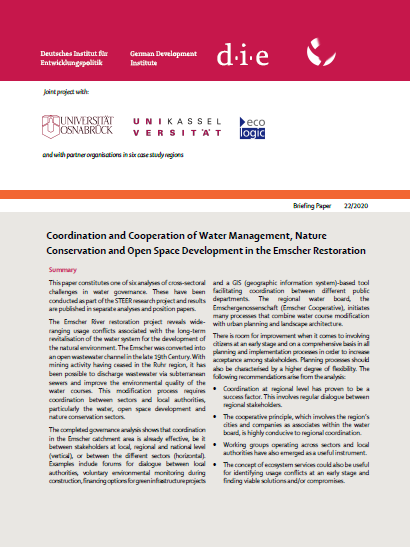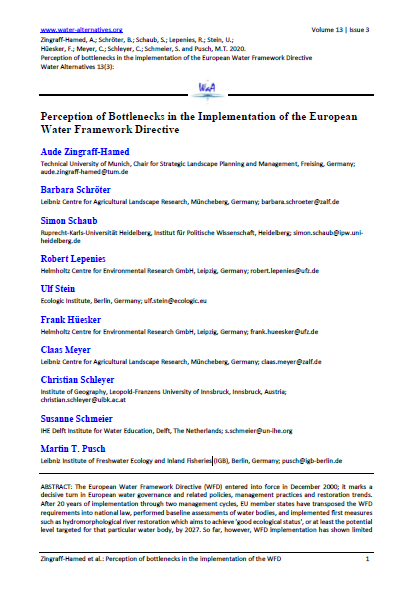Niedrigwasser und Trockenheit: Herausforderungen und Entwicklung sektorenübergreifender Anpassungsmaßnahmen auf Flussgebietsebene
- Publication
- Citation
Sutcliffe, Robynne; Nadine Gerner; Ulf Stein; Jenny Tröltzsch; Mayada Koudaimi; Mario Sommerhäuser 2020: Niedrigwasser und Trockenheit: Herausforderungen und Entwicklung sektorenübergreifender Anpassungsmaßnahmen auf Flussgebietsebene. In: KW - Korrespondenz Wasserwirtschaft, Jg. 2020, Heft 12.
Climate change is already causing an increase in extreme weather events, including an increase in the frequency and duration of periods of dry and drought conditions. In this paper, colleagues of the Emschergenossenschaft and Ecologic Institute summarize discussions on coordination and cooperation approaches for low water management and prevention at a workshop in the Emscher region.
Low water flow and even the drying up of water bodies were observed in the Emscher watershed during the hot and dry summers of 2018 and 2019. In turn, the hydrological and environmental impacts on watercourses and their watersheds influence many ecosystem services, such as climate regulation, biodiversity and cultural services. A further increase in extreme weather situations is expected as climate change progresses. The water sector has to adapt to these new challenges. To act in a timely fashion, a series of adaptation strategies, planning processes, new management concepts and instruments for the affected water bodies will be needed. Good cooperation and coordination from different stakeholders from various sectors will also be required to implement these kinds of approaches in a sustainable and strategic manner. Funded by the German Federal Ministry for Education and Research (BMBF), the STEER project determined the factors hindering and supporting these kinds of approaches in a workshop format using the example of three specific coordination and cooperation requirements on low water and drought in the Emscher region:
- an overarching strategic approach to low water management,
- plans and strategies to prepare for low water levels and
- water body monitoring, including projecting future scenarios.
This article discusses the approaches that were deemed suitable for the Emscher region and what shape they might take in the future based on the results of the workshop.
